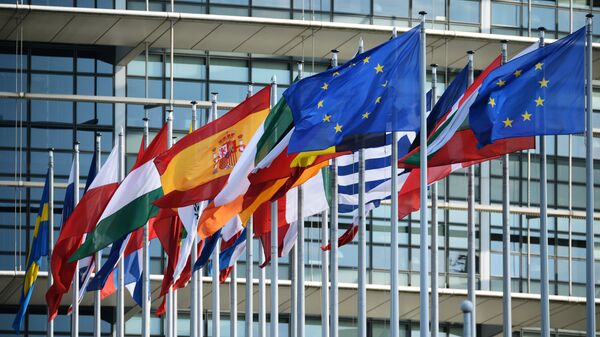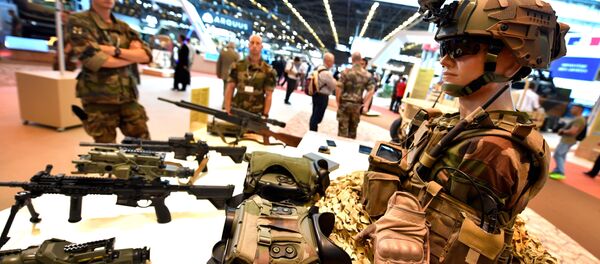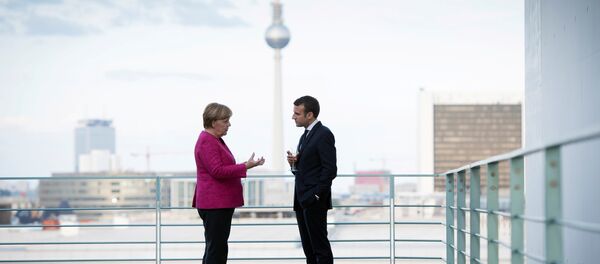The EU's suggested solution to migration last week was not accepted by German Chancellor Angela Merkel's coalition partner, Horst Seehofer, and he has offered to resign as both the interior minister and head of his party, the Christian Social Union, a longtime partner of Merkel's party, the Christian Democrats.
Braun, co-president of the International Peace Bureau, told Radio Sputnik's Loud & Clear Tuesday that the EU migration crisis is actually more of a political crisis caused by the neoliberal system affecting the wealth of countries differently.
"The main point of what happened is not the fight between Merkel and Seehofer. The point is the new order of the party system in Germany, which is developing three new blocs like in other countries," Braun told hosts John Kiriakou and Brian Becker.
"One of the blocs is the new right-wing bloc that includes the Alternative for Germany (AfD) party and the Christian Social Union (CSU). This is the bloc for nationalist right-wing politics. And there will maybe be a new middle bloc that we can call the Macron bloc, which includes the Christian Democratic Union (CDU), and then there is the third, which is the smallest one, the left bloc, including left parties and other smaller parties. This is a new order which has been coming in since the last three years. The fight between Merkel and Seehofer is a fight between the divisions of the right and middle blocs," Braun explained.
Merkel, a longstanding proponent of the open border policy, realized that she had overshot the mark during the summit. Afterward, Merkel discussed the migration issue with Seehofer, admitting the necessity to reduce the flow of refugees coming to Europe, Sputnik reported Monday.
The migration issue has seen not only opposition parties like AfD attack Merkel's position, but increasingly her time-tested coalition allies in the CDU have taken issue with Merkel's open border policy. Seehofer threatened to resign last Thursday unless Merkel reconsidered her position. The potential breakup could deal a fatal blow to the German coalition government.
Merkel, for her part, stressed that the compromise between the CSU and CDU would secure the principle of freedom of movement within the EU while allowing Germany to take "national measures" to limit migrant arrivals.
Seehofer's tough stance most likely comes from the threat posed by the AfD in his home state of Bavaria. In late June, the right-wing party held a two-day congress in Augsburg calling upon Hungary's Viktor Orban and Austria's Sebastian Kurz to create "Fortress Europe." Sputnik also reported Monday that Italian Prime Minister Giuseppe Conte's new government was emboldened enough to threaten to veto the European Council's decision on migration last week, with the demand for action only be salvaged by hours of talks.
"This is definitely not a migration crisis," Braun told Radio Sputnik.
"The migration problem has been reduced dramatically since 2016. It was really a problem in 2015. Even at that time, in relation to the situation in many other countries in the world like Jordan and Lebanon, it was never a big crisis in Europe. The total number of people that came to Europe was less than 1 million. It is a political crisis and the background behind the crisis is the neoliberalism system which makes such of countries richer and some of these countries poorer," Braun added.
EU countries experienced a large influx of thousands of migrants and refugees fleeing crises and poverty in the Middle East and North Africa since 2015. Germany is among the EU states that have accepted hundreds of thousands of refugees and asylum seekers in a bid to address the situation.





